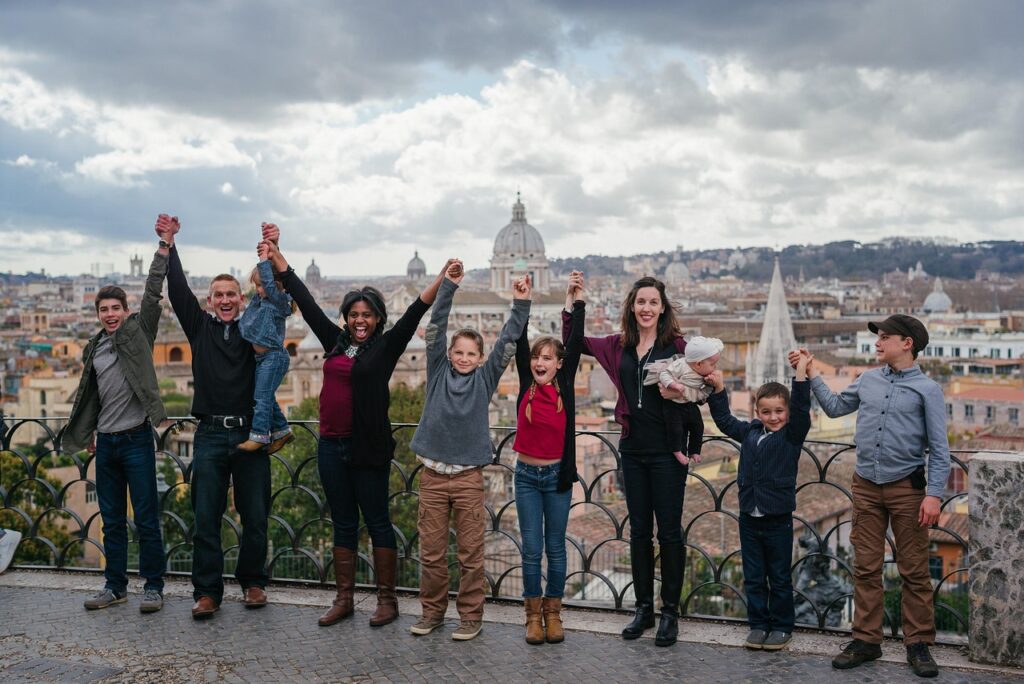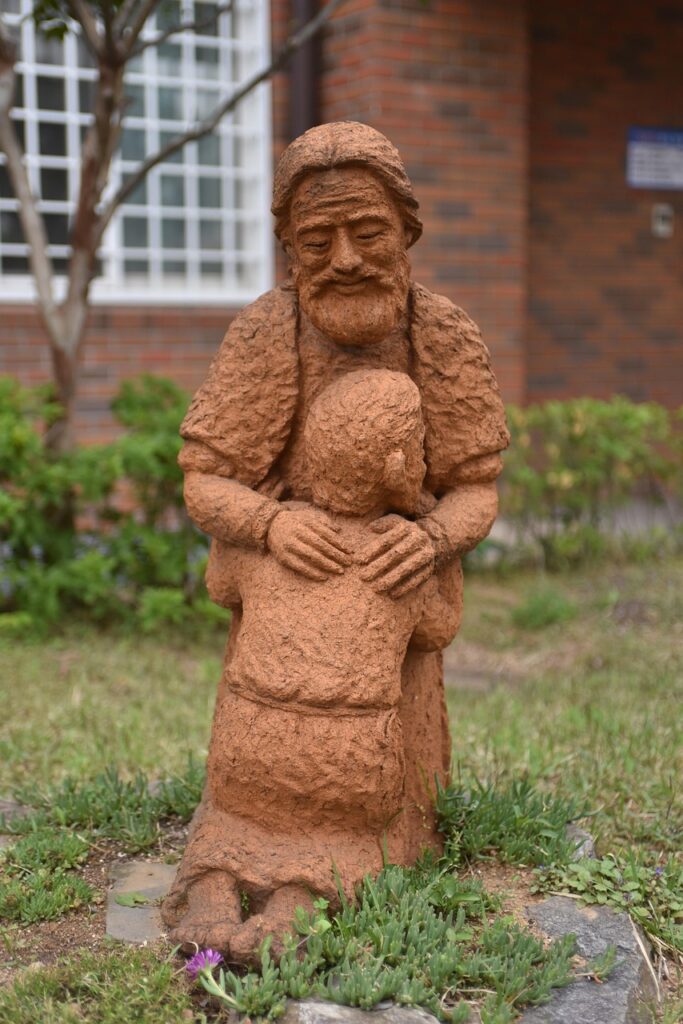The 5 Verses You Need To Know To Feel Forgiven
I’ll be honest with you—there was a time when I held on to bitterness like it was protecting me. Someone had hurt me, and I thought that by refusing to forgive, I was keeping control. But in reality, it was the opposite. The anger weighed me down, like carrying a heavy backpack everywhere I went. It affected my thoughts, my peace, even my prayers.
What I eventually discovered is that forgiveness isn’t really about the other person at all—it’s about me. It’s about you. Forgiveness is like love or peace: it never runs out. Think of it like a light that can be shared endlessly without ever dimming. The more I forgave in my heart, the freer I felt. I realized I wasn’t losing anything by letting go—I was gaining back my joy, I was defining God.
Jesus makes this clear in Mark 11:25: “Whenever you stand praying, forgive, if you have anything against anyone, so that your Father who is in heaven may also forgive you your trespasses.” That verse hit me hard, because it showed me that unforgiveness doesn’t just block relationships with others—it blocks my connection with God.
Here’s what surprised me: the process of forgiveness doesn’t have to start with a big conversation or even involve the other person at all. It begins in your thoughts. The moment I chose to think about forgiving, something shifted. My body felt lighter, my mind calmer. It was as if peace itself started to rise up inside me.
So if you’re carrying that same heavy backpack I once carried, I want you to know—putting it down doesn’t mean you’re weak, and it doesn’t mean you’re saying what happened was okay. It means you’re choosing freedom. Forgiveness is a gift from God, but it’s also a gift you can give yourself. And the moment you take that first step, you’ll find His love and peace rushing in, filling every empty space
Therefore, I am going to share with you four other verses that profoundly testify to this truth so that you too can be free by floating on the true definition of God.
Knowing About Forgiveness
Living in Peace Through Forgiveness and Connection with God

God’s Love Is the Foundation
John 3:16, “For God so loved the world that He gave His only begotten Son, that whoever believes in Him should not perish but have everlasting life.”
At the very center of our faith is love—God’s love. This verse is so familiar that it’s easy to gloss over it, but pause for a moment. Let it sink in.
God loved the world. That includes you. That includes me. That includes the people we struggle to love. His love was so great that He gave us His Son—not to condemn, not to shame, but to restore and to heal.
Jesus’ message was clear: build an unshakable relationship with God, the Father. From that relationship flows everything else—our identity as His children, our love for ourselves, and our love for our neighbors. When we understand this, we are understanding the true definition of God.
Everything Jesus did—every miracle, every act of compassion, every word of truth—was a demonstration of this reality. He wasn’t just telling us what to believe; He was showing us how to live. And the promise? If we truly live in this relationship, we won’t just understand His power—we’ll walk in it.
But here’s the challenge: when we drift from God, when ego takes the driver’s seat, life feels heavy. Love becomes hard. We slip into impatience, selfishness, and habits that don’t reflect who we really are.
And yet—the good news is this: the connection can always be restored. It starts in the mind—with awareness—and moves into action. The moment we choose to return, peace follows. Not a fragile, temporary peace, but the kind that Jesus described as everlasting.
Clearing the Trash of the Heart
Ephesians 4:32, “And be kind to one another, tenderhearted, forgiving one another, even as God in Christ forgave you.”
Paul’s words might sound like commands, but really, they’re invitations. Invitations to live light. Invitations to freedom. Invitations to define God.
Think of it this way: every one of us cleans our homes. Why? Because when trash piles up, pests arrive, disease spreads, and discomfort follows. It doesn’t matter who made the mess—if you don’t clean it, you’re the one who suffers.
The same is true spiritually. Life hands us invisible trash all the time—hurtful words, negative messages as texts or videos in our cellphone's inbox or computer, betrayal, rejection, shame. If we let them sit in our hearts, they rot. They poison our peace.
Just as we erase those messages or inappropriate videos sent to us in our machines, forgiveness is the spiritual cleaning we all need. Not because the other person deserves it, but because we deserve peace. It’s not about doing them a favor—it’s about refusing to live in a garbage dump of resentment. It's properly defining God.
So ask yourself: what “trash” am I still holding onto? What words or wounds do I keep replaying? God’s invitation is simple—clear it out. Put it away. Make space for peace.
Forgiveness Without Limits

Matthew 18:22, “Jesus said to him, ‘I do not say to you, up to seven times, but up to seventy times seven.’”
Here’s the question we all wrestle with: How many times do I have to forgive?
It feels exhausting. Forgive once, maybe twice—but over and over again? Isn’t there a limit?
Peter thought he was being generous when he suggested seven times. But Jesus shocked him: “Not seven… seventy times seven.”
Do the math and it’s 490 times. But that’s not the point. The point is this—stop counting. Forgiveness isn’t about tallying offenses, it’s about choosing freedom every time.
Think about it. Is it even possible for someone to hurt you 490 times? Of course not. Jesus was showing us that forgiveness is endless, because love is endless.
When we forgive, we stop trash from piling up. And when there’s no trash, there’s no pest, no poison, no chaos. What remains is peace.
God’s Forgetfulness Is Our Freedom
Hebrews 10:17, “Their sins and their lawless deeds I will remember no more.”
This is one of the most beautiful promises in Scripture. When we reconcile with God, He doesn’t just forgive—He forgets.
He doesn’t hold our past against us. He doesn’t bring it up later to remind us of our failures. He wipes it clean.
That includes the so-called “original sin” that has weighed down so many hearts with fear. Too many of us live as if we’re doomed from birth. But God says otherwise. His promise is restoration, renewal, and peace.
And here’s where it gets practical: you and I must accept that gift. Not question it. Not resist it. Accept it.
Awareness comes first—we realize God offers us freedom. Acceptance comes next—we step into it. And when we do, fear loses its grip. Peace takes its place. Joy becomes our inheritance.
Final Reflection
So what do we learn when we bring all these passages together?
God loves us. Jesus shows us how to live in that love. Forgiveness keeps us free. Peace is always possible.
The call is simple but life-changing:
- Stay connected to the Father.
- Clear out the trash.
- Forgive without limits.
- Accept His gift of forgetfulness.
And when we do? We begin to experience the life God promised—a life not defined by fear or failure, but by everlasting peace. we begin to actually know God for real.
And Now Knowing Forgiveness

Steps to Practice Forgiveness
1. Choose forgiveness in your thoughts.
Forgiveness begins in the mind before it becomes an action. Decide—sometimes daily—to release the offense. You may not feel it right away, but your thoughts set the direction of your heart.
2. Acknowledge the hurt.
Don’t minimize it or pretend it didn’t happen. Name what was done and how it made you feel—whether it’s sadness, anger, betrayal, or disappointment. Being honest about the wound is the first step toward healing it.
3.Bring it to God in prayer.
Ask Him to help you see the situation through His eyes. Pray for strength, wisdom, and the grace to release what you’ve been holding. Even a simple prayer like “Lord, I know I can forgive as You forgive me. I intend to forgive” can open the door to peace.
4. Release the desire for revenge or payback.
Letting go doesn’t mean what happened was right, but it means you’re surrendering justice into God’s hands. It's being aware that all that trash in form of bitterness is not yours and not needed inside of you.
5. Practice empathy.
This doesn’t excuse wrongs, but ask yourself: What pain or brokenness might have led this person to act that way? Sometimes seeing their humanity softens your heart enough to forgive. Remember Jesus’s forgiveness response, Father, forgive them, for they do not know what they do;” Luke 23:34. No one wants to be hurt. Anyone who hurts another does not really know what they are doing because they get hurt as well in the process.
6. Speak words of blessing (even if quietly).
Pray blessings over the person, even if they’ll never hear them. It may feel strange at first, but speaking life instead of bitterness loosens the grip of resentment. You have peace to offer, and it cannot be exhausted; so, be assured that you will never lack it when you offer it to others.
7. Let time and repetition do their work.
Forgiveness is often a process, not a one-time event. Some hurts need to be forgiven again and again until the weight finally lifts. Be patient with yourself.
8. Practice Quieting the Mind to part away from negative thoughts. There is no better step to knowing of God than this.
9. Celebrate your freedom.
Notice how your heart feels lighter, your prayers clearer, your spirit more at peace. Forgiveness isn’t only a gift to others—it’s one of the greatest gifts you can give yourself.
If these 5 verses reconcile your broken relationship with God as they did for me, please tell us and let other know so that they too can make a return trip toward healing.
God bless you!

